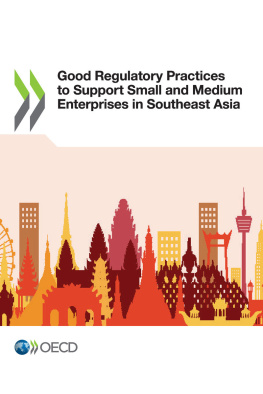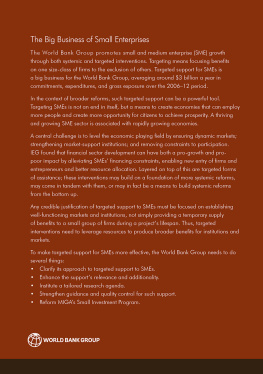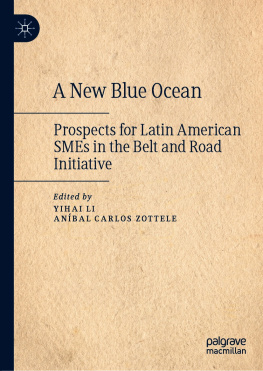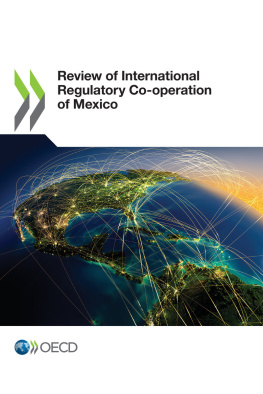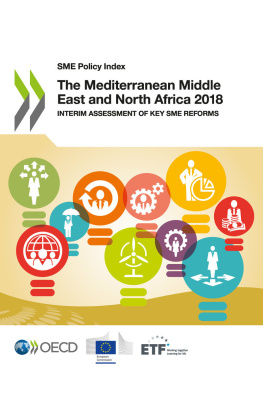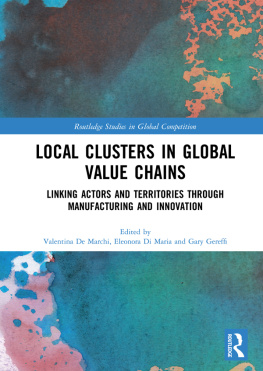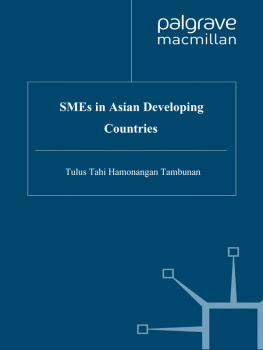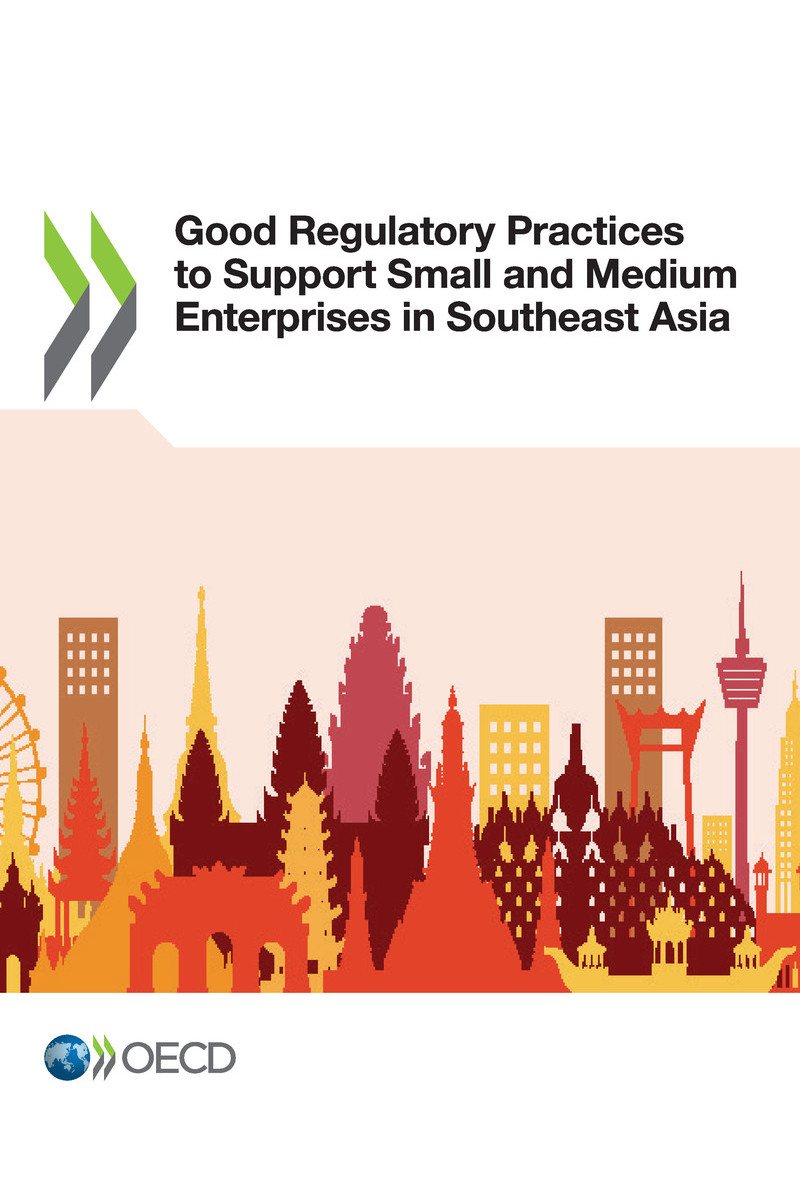Metadata, Legal and Rights
ISBN: 978-92-64-30542-7 (print) - 978-92-64-30543-4 (pdf) - 978-92-64-30683-7 (HTML) - 978-92-64-30682-0 (epub)
DOI: https://doi.org/10.1787/9789264305434-en
This work is published under the responsibility of the Secretary-General of the OECD. The opinions expressed and arguments employed herein do not necessarily reflect the official views of OECD member countries.
This document, as well as any data and any map included herein, are without prejudice to the status of or sovereignty over any territory, to the delimitation of international frontiers and boundaries and to the name of any territory, city or area.
The statistical data for Israel are supplied by and under the responsibility of the relevant Israeli authorities. The use of such data by the OECD is without prejudice to the status of the Golan Heights, East Jerusalem and Israeli settlements in the West Bank under the terms of international law.
Photo credits: Cover MuchMania/shutterstock.com.
Corrigenda to OECD publications may be found on line at: www.oecd.org/publishing/corrigenda .
OECD 2018
You can copy, download or print OECD content for your own use, and you can include excerpts from OECD publications, databases and multimedia products in your own documents, presentations, blogs, websites and teaching materials, provided that suitable acknowledgement of OECD as source and copyright owner is given. All requests for public or commercial use and translation rights should be submitted to .
Foreword
Good regulatory practices (GRP) refer to the use of tools such as regulatory impact evaluation, stakeholder engagement and ex post evaluation to improve the quality of the regulatory environment for businesses, citizens and society. GRP tools are useful for identifying and reviewing which regulations are essential for achieving given outcomes, ultimately making regulatory compliance as straightforward and meaningful as possible.
For businesses, GRP facilitate a stable and enabling regulatory environment that can help boost investment, trade and entrepreneurship. While GRP benefits businesses of all sizes, they are especially helpful for small and medium-sized enterprises (SMEs). Compared with their larger counterparts, SMEs may be less adaptive to and potentially disproportionately affected by the stock and flow of regulations. In Southeast Asia, where the vast majority of businesses are SMEs, a regulatory environment ill-adapted to the needs and characteristics of SMEs can significantly undermine the health of the local economy as well as regional competitiveness.
Indeed, policy makers can help SMEs thrive in local communities as well as participate in global value chains by adopting GRP that make regulations easier to understand while simultaneously reducing the time and costs associated with compliance. This applies both to the national context, where SMEs may face a number of regulatory barriers to sustain operation or to grow larger, and to the international context, where SMEs may need additional support to meet varying regulatory requirements.
The OECD has published numerous guidelines and toolkits to help countries (central governments, sectoral ministries, regulatory and competition agencies) adopt regulatory policy, management and governance. These include the OECD Guiding Principles for Regulatory Quality and Performance , A PEC-OECD Integrated Checklist on Regulatory Reform and the Best Practice Principles for Regulatory Enforcement and Inspections . The OECD has also worked with individual countries to improve regulatory delivery; for example, it undertook an evaluation of administrative simplification in Viet Nam.
This report presents the first stocktaking of GRP in all ten Association of Southeast Asian Nations (ASEAN) member countries. It highlights the efforts each government has taken to advance GRP in various areas, including cutting red tape, regulatory oversight, regulatory impact assessment, stakeholder engagement, ex post evaluation, e-government and appeals. As countries continue to move towards an ASEAN single market, co-ordinating GRP implementation will become increasingly important for improving regulatory oversight and reducing cross-border regulatory gaps.
Country-specific policy recommendations are proposed for improving regulatory design, co-ordination, implementation and impact assessment in Southeast Asia. Recommendations are intended to complement ongoing efforts to improve regulatory design and delivery to support the growth of SMEs in the region, in line with best practices.
This work supports the ASEAN Economic Community Blueprint, the Master Plan on ASEAN Connectivity and the ASEAN Strategic Action Plan for SME Development.
ASEAN government officials and the ASEAN Secretariat have provided significant inputs to this publication. It is part of the Canada-OECD Project on ASEAN SMEs (COPAS) funded by the Government of Canada. The report builds on the work on GRP conducted by the Regulatory Policy Division of the OECD Directorate of Public Governance. The Directorates mission is to help government at all levels design and implement strategic, evidence-based and innovative policies that support sustainable economic and social development.
Acknowledgements
This report was co-ordinated and prepared by Shelly Hsieh and Winona Bolislis. Faisal Naru led the project and provided guidance on the analysis. The report benefitted from substantive inputs from Filippo Cavassini, Anna Pietikainen and Nick Malyshev, Head of the Regulatory Policy Division, with encouragement and support from Marcos Bonturi, Director of the Public Governance Directorate. Cline Kauffmann and Marianna Karttunen contributed to the initial phase of the analysis. Jennifer Stein co-ordinated the editorial process. Kate Lancaster and Andrea Uhrhammer provided editorial support.
Le Duy Binh from Economica Vietnam and Zoe Dayan provided essential data collection and advisory support for the country chapters for Cambodia, Lao PDR (Dayan) and Viet Nam (Binh).
This report has benefitted from extensive consultations with ASEAN government official, ministries and private sector representatives responsible for developing and implementing GRP. In particular, the authors would like to thank the following key country contacts for co-ordinating the consultations and data collection, providing in-depth feedback about regulatory policies and practices to support SMEs, and sharing insights on early findings: Mohamad Munawir Shazali Idris (Prime Ministers Office, Brunei) and Nadia Saiful Rizal (Ministry of Energy and Industry, Brunei); Sokha Pech (ECOSOCC, Cambodia); Diani Sadiawati and Ahmad Dading Gunadi (BAPPENAS, Indonesia), Destry Anna Sari (Ministry of Cooperative and SMEs, Indonesia), Sukarman (Coordinating Ministry for Economic Affairs, Indonesia), Tities Eka Agustine (KPPOD), Enny Nurbaningsih (Ministry of Law and Human Rights, Indonesia); Siti Norlailasari Binti Abdul Rahman (Ministry of International Trade and Industry, Malaysia), Roziana Othman (Malaysia Productivity Corporation), Intan Zanariah Hamdan (SME Corp. Malaysia); Aye Aye Win and Phyu Phyu Win (Department for SME Development, Myanmar), Aung Soe and Myat Soe Moe (Myanmar Trade Promotion Organisation), Aye Aye Win (Department of Customs, Myanmar), Minn Minn and Thandar Khin (Ministry of Commerce, Myanmar), Than Than Htay (Department of Agriculture, Myanmar), Mya Than and Kyaw Zin Lat (Department of Small Scale Industry, Myanmar), Aung Naing Oo (DICA/Myanmar Investment Commission); Carlos Bernardo Abad Santos and Thelma Manuel (National Economic Development Authority, Philippines) and Kenneth Francis Fernandez (Department of Trade and Industry, Philippines), Jun Han Wong and Geraldine Yeow (Enterprise Singapore); Pakorn Nilprapunt and Jaisai Wongpichet (Office of the Council of State, Thailand), Pimchanok Vonkorpon and Pattaranat Wuttiwai (Ministry of Commerce, Thailand), and Attanisa Changchaitum (Office of SME Promotion, Thailand). Aung Kyi Soe, Aung Thein and Maung Maung Lay (UMFCCI), Blaise Kilian (Eurocham Cambodia), Petra Schill (GIZ) and Peter Brimble (DaNa Facility) contributed valuable advice.

